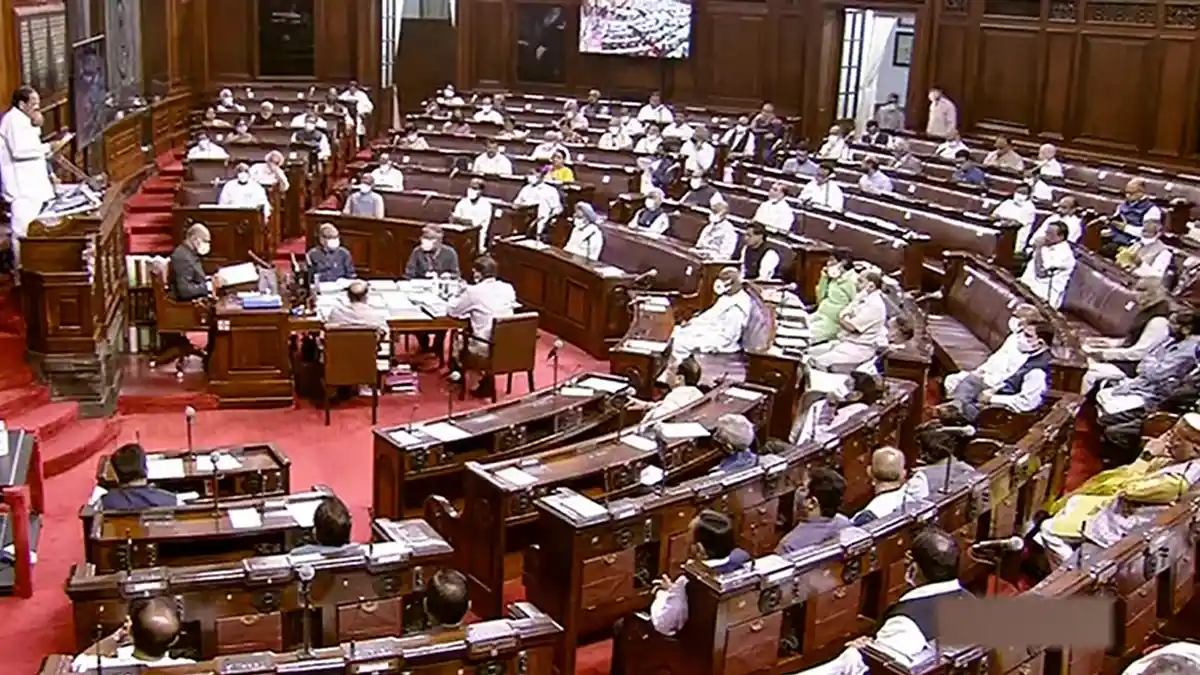Introduction:
In the Indian parliamentary system, the Rajya Sabha, also known as the Council of States, stands as a crucial pillar of democracy. As the upper house of the Parliament of India, it plays a significant role in representing the states and union territories, ensuring checks and balances, and fostering deliberative democracy. This article explores the functions, composition, powers, and significance of the Rajya Sabha in India’s legislative process.
- Composition of Rajya Sabha:
The Rajya Sabha consists of 245 members who are elected and nominated. Of these, 233 members are elected by the elected members of the State Legislative Assemblies, and 12 members are nominated by the President of India. The elected members serve for a term of six years, with one-third of the house retiring every two years, ensuring a continuous presence of experienced legislators.
- Representation of States and Union Territories:
The Rajya Sabha ensures fair representation of states and union territories, providing a platform for their voices to be heard. It acts as a federal chamber by representing the interests of different regions, accommodating diverse perspectives, and facilitating dialogue between the central government and the states. This ensures that legislative decisions are not disproportionately influenced by the central government and that the interests of all states are considered.
- Role in Legislation:
The Rajya Sabha plays a vital role in the legislative process. It shares the power of making and amending laws with the Lok Sabha (Lower House of Parliament). Any bill, except a money bill, can be introduced and passed by both houses. The Rajya Sabha acts as a revising chamber, carefully examining bills passed by the Lok Sabha, offering amendments, and ensuring comprehensive and well-considered legislation.
- Ensuring Checks and Balances:
One of the essential functions of the Rajya Sabha is to provide checks and balances to the Lok Sabha. The Rajya Sabha can delay legislation by sending it back to the lower house for reconsideration or propose amendments to rectify any potential flaws. This serves as a crucial safeguard, preventing hasty or flawed decisions, and fostering a more deliberative and thoughtful legislative process.
- Expertise and Specialized Committees:
The Rajya Sabha houses members with diverse backgrounds, including experts from various fields. This wealth of knowledge enables the formation of specialized committees that examine specific issues in detail. These committees play a significant role in scrutinizing bills, conducting inquiries, and suggesting improvements, ensuring well-informed decision-making.
- Representation of Minorities and Marginalized Communities:
The Rajya Sabha provides a platform for the representation of minorities, marginalized communities, and intellectuals who may not contest direct elections. The nomination process allows for the inclusion of individuals with expertise, social influence, or contributions in various fields, promoting inclusivity and ensuring that the Parliament reflects the diversity of the nation.
Conclusion:
The Rajya Sabha, as the upper house of Parliament, stands as a symbol of democracy and federalism in India. Through its composition, representation, and powers, it upholds the principles of checks and balances, inclusivity, and deliberative democracy. It serves as a platform for states and union territories, facilitates fair legislation, and ensures that the interests of all sections of society are adequately represented. The Rajya Sabha continues to play a pivotal role in shaping India’s democratic landscape and fostering a vibrant parliamentary democracy.
![]()





